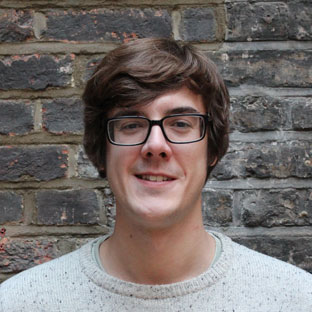I have recently returned from a brief trip to Finland, where I was meeting Fellows and health and social sector policymakers to discuss the RSA’s research into communities and health. I was struck by the RSA’s huge potential for impact in this small and fascinating country. I presented our Connected Communities findings to four audiences – of health leaders, university officials, RSA Fellows and a major city hospital – and was grateful for the hospitality and the warm reception to our research I received from each group.
There was a real appetite for the Connected Communities approach to building communities and for the key messages from our programme - that social isolation and low wellbeing are linked and should be considered a public health issue, that people fare better when they have informal social support and relationships around them, and that this ‘community capital’ can be invested in, grown and sustained. In our discussions after I presented my work, people told me that these messages made an intuitive sense to people from a Nordic society that values collective action and cooperation, but also felt fresh in a country that traditionally sees positive social outcomes as being necessarily linked to technocratic, government-delivered social services.
As in the UK, there is much public policy discussion in Finland about the sustainability of public services, especially in the health sector. Finland has one of the most comprehensive universal welfare systems in the world, but its ageing population and declining birth-rate, combined with concerns for the economy as the Nokia-fuelled growth of the late 1990s and early 2000s fades in the memory, means that some are concerned about the viability of the system. A new government elected last year – in the first centre-right majority since the early 1990s – is looking to make changes. Some €10 billion of austerity savings are planned, along with government intentions to lower wages across the country in a move almost certain to be disputed by Finland’s strong trade union movement. In this context, Connected Communities approaches which seek to achieve social outcomes without requiring new capital-intensive state programmes, but nevertheless seek to strengthen the viability and effectiveness of public services by looking to make more use of resources outside of existing systems, could add real social value.
One of my co-presenters in a seminar of health and social sector leaders presented some intriguing – but troubling – figures on current health issues in Finland. Over the past 20 years, Finland has achieved great results in lessening the mortality rate from a range of health issues, including heart disease and cardiovascular illness. And yet in the same period, mortality related to alcohol has increased by an alarming 50%. This suggests to me that Finland’s conventional healthcare services have been performing well, but there remain significant social problems that have a grave impact on health and may benefit from a different, more community centred approach.
The RSA and its extraordinary network of Finnish Fellows may have a role to play in this respect. Our Finland group is made up of almost 200 Fellows and almost certainly the largest and most dynamic grouping outside of the UK. They meet regularly, are all serious about driving positive social change, and many of them occupy key positions of influence in Finnish society, counting business CEOs, public sector leaders, and the heads of national arts institutions among their number. In a young nation (it celebrates its first centenary of independence next year) which rapidly moved from a largely agrarian society to a wealthy, welfare and union-oriented society after the Second World War and apparently does not have a particularly strong tradition of civic society-based action, the Fellowship in Finland occupy a rare niche and their potential for social impact is huge.
It is exciting to think about the possibilities about such a network in a country of just 5 million people. The RSA’s unique mix of its platform which promotes ideas for 21st Century Enlightenment, its research which includes new ways of thinking about public services and communities, and its network of Fellows committed to social change, constitutes a powerful and creative force in Finland. Among other initiatives, Fellows are working with Aalto University in Helsinki on a new ‘good society’ initiative, and exploring potential avenues to roll out a network of events and meetings themed around RSA content that can help to drive social inclusion and community action. We’ll continue to ensure that the relationship and mutual exchange of ideas between John Adam Street and Helsinki remains strong, as we support the Finnish Fellowship to go from strength to strength.
Related articles
-
Combating loneliness and connecting communities - do we need a social movement for health?
Rowan Conway
Loneliness in the UK is at epidemic proportions, so is it now time to rethink what we as communities can do about it?


Be the first to write a comment
Comments
Please login to post a comment or reply
Don't have an account? Click here to register.